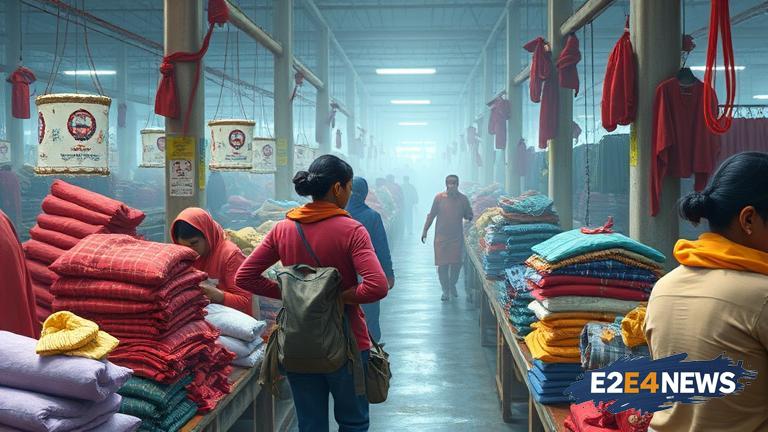The United States has decided to go ahead with imposing 50% tariffs on certain Indian goods, a move that is expected to have severe consequences for India’s labour-intensive export sectors. These sectors, which include textiles, leather, and handicrafts, are bracing themselves for a potential 70% collapse in exports. The tariffs, which are set to come into effect soon, will make Indian goods more expensive for American consumers, leading to a decline in demand. This, in turn, will have a devastating impact on the livelihoods of millions of workers employed in these sectors. The Indian government has been trying to negotiate with the US to exempt these sectors from the tariffs, but so far, no agreement has been reached. The tariffs are part of a broader trade dispute between the two countries, with the US accusing India of unfair trade practices. India has denied these allegations and has imposed its own tariffs on US goods in retaliation. The collapse of India’s labour-intensive export sectors will not only have economic consequences but also social ones. Many of these sectors are located in rural areas, where employment opportunities are already scarce. The loss of jobs will lead to increased poverty and migration to urban areas, putting a strain on already-overburdened cities. The Indian government will need to take urgent action to mitigate the effects of the tariffs and find new markets for these sectors. This could involve providing financial support to affected businesses, as well as investing in infrastructure and training programs to help workers develop new skills. The US decision to impose tariffs on Indian goods is also expected to have broader implications for the global economy. It will lead to increased trade tensions between the two countries, which could have a ripple effect on other economies. The World Trade Organization (WTO) has warned that the tariffs could lead to a global trade war, which would have devastating consequences for the world economy. The Indian government has appealed to the WTO to intervene in the dispute and prevent the tariffs from coming into effect. However, the WTO has limited powers to resolve trade disputes, and it may take months or even years for a resolution to be reached. In the meantime, India’s labour-intensive export sectors will continue to suffer, and the country’s economy will be severely impacted. The US decision to impose tariffs on Indian goods is a clear example of the protectionist policies that are being pursued by the Trump administration. These policies are designed to protect American industries and jobs, but they will have the opposite effect in the long run. They will lead to increased trade tensions, higher prices for consumers, and a decline in economic growth. The Indian government will need to take a strong stance against these policies and work with other countries to promote free trade and economic cooperation. The collapse of India’s labour-intensive export sectors will also have environmental implications. Many of these sectors are involved in the production of textiles and leather goods, which have a significant environmental impact. The decline of these sectors could lead to a reduction in greenhouse gas emissions and other environmental pollutants. However, this will be small comfort to the millions of workers who will lose their jobs as a result of the tariffs. The Indian government will need to take urgent action to address the social and economic consequences of the tariffs and find new ways to promote sustainable economic growth. This could involve investing in renewable energy, promoting eco-tourism, and supporting small and medium-sized enterprises. The US decision to impose tariffs on Indian goods is a wake-up call for the Indian government to diversify its economy and reduce its dependence on labour-intensive export sectors. This will require significant investment in education and training programs, as well as infrastructure development. The government will also need to promote innovation and entrepreneurship, and create a favourable business environment to attract foreign investment. The collapse of India’s labour-intensive export sectors is a major setback for the country’s economic development, but it also presents an opportunity for the government to promote sustainable and inclusive growth. With the right policies and investments, India can reduce its dependence on labour-intensive export sectors and promote economic growth that is sustainable and equitable.
